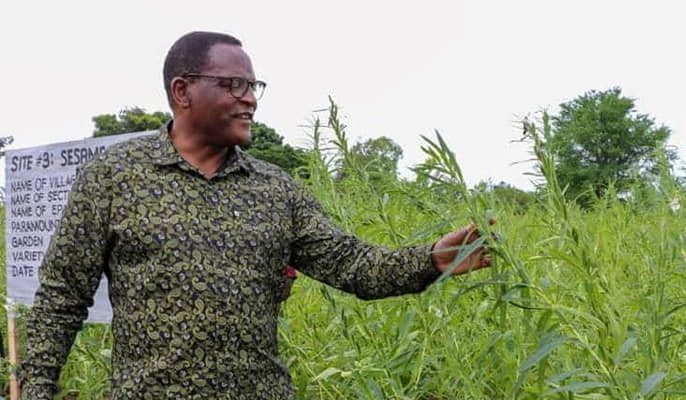
“Leadership is solving problems. The day soldiers stop bringing you their problems is the day you have stopped leading them. They have either lost confidence that you can help or concluded you do not care. Either case is a failure of leadership.” – Colin Powell, the first African American Secretary of State.
Preamble
“The commission declares that Lazarus Chakwera, the candidate who has attained 58.57 percent of the votes, has attained the requisite majority of the electorate as appearing in the second schedule and is duly elected as President of the Republic of Malawi,” Dr. Chifundo Kachale, the Chairperson for Malawi Electoral Commission announced the results of the fresh presidential elections at 7.48 pm local time on 27th June 2020. This was followed by an ecstasy of jubilation and ululation by the Malawi Congress Party members, signifying high expectations and aspirations.
The following day, on 28th June 2020, Reverend Dr. Lazarus Chakwera was sworn in as the President of the Republic of Malawi, stating, “I… do solemnly swear that I will well and truly perform the functions of the high office of the President of the Republic of Malawi and that I will preserve and defend the constitution.”
In his acceptance speech, President Chakwera pledged, “With your help, we will restore faith in having a government that serves; not a government that rules, a government that inspires, not a government that infuriates, a government that listens, not a government that shouts, but a government that fights for you and not against you.” Has this been achieved? What is the reality on the ground?
As President Chakwera marks three years in power, we will take a closer look at how the Tonse Alliance government is faring. This article assesses Chakwera’s regime with respect to ten criteria: leadership, rule of law, standard of living, integrity, accountability and transparency, equality and equity, infrastructural development, health, education, industrialization, and campaign promises.
1) Leadership
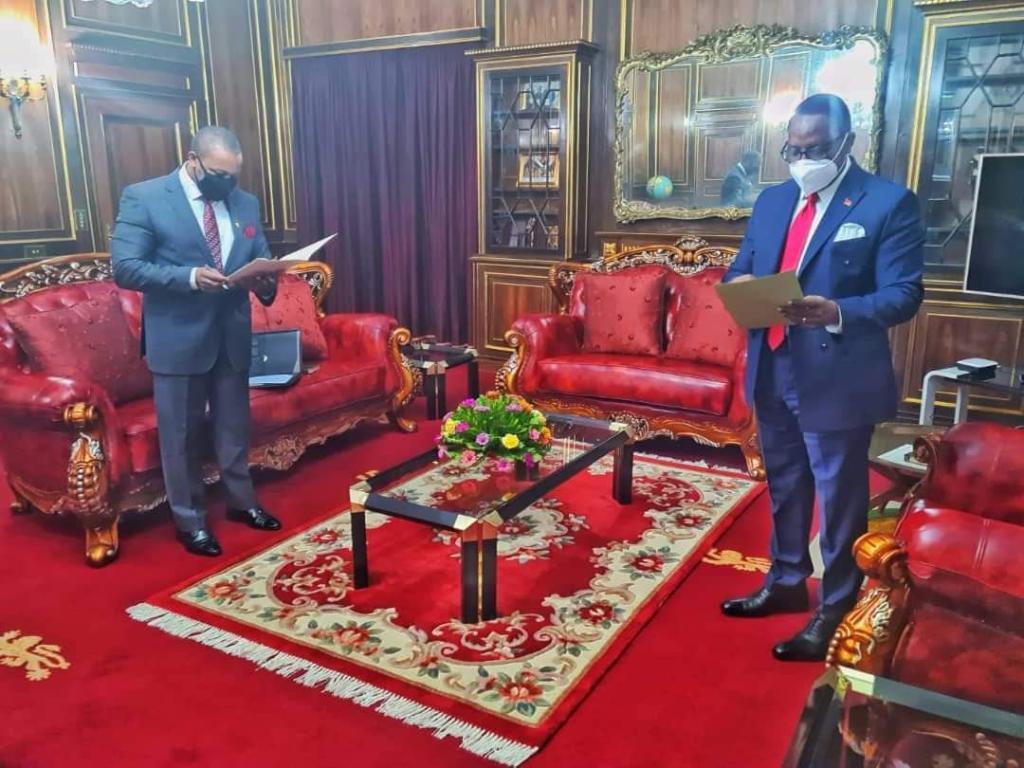
It is fair to observe that President Chakwera has made efforts to meet the expectations of Malawians.
Malawi now enjoys cordial relationships with many countries, as evident from the state visits by President Filipe Jacinto Nyusi of Mozambique and President Emmerson Dambudzo Mnangagwa of Zimbabwe.
Another positive aspect is President Chakwera’s willingness to answer questions in the National Assembly, demonstrating his commitment to accountability and transparency.
Delegating former presidents on national issues is also a political achievement for President Chakwera. Former presidents Joyce Banda and Bakili Muluzi serving as ambassadors to assist cyclone Freddy victims in leading a normal life is commendable. However, it is regrettable that Prof. Peter Mutharika refused to be involved in this cause, which was a missed opportunity.
Additionally, President Chakwera has recently made bold decisions to remove politicians like Eisenhower Mkaka, Patricia Kaliati, Blessings Chinsinga, Gospel Kazako, and Timothy Mtambo, allegedly due to corruption and other reasons.
However, not everything is positive regarding Chakwera’s leadership. The laissez-faire or autopilot approach has led to a business-as-usual mentality in government ministries, departments, and agencies (MDAs). Transformational leadership is lacking.
The president’s flowery speeches without action have become an elusive tactic to convince gullible citizens that Malawi has achieved prosperity.
Nepotism, tribalism, and regionalism have become prominent factors in accessing public services and job recruitment in MDAs, following the president and vice presidents’ tendencies.
Lastly, President Chakwera has not demonstrated strong leadership in fighting corruption. There is a lack of political will to expedite the prosecution of corruption suspects within the Tonse Alliance.
The recent pardon of Uladi Mussa by President Chakwera raises concerns about the promotion of corruption in the country. Moreover, discontinuing the corruption case against former President Bakili Muluzi by President Chakwera himself reinforces the perception that his regime is not serious about combating corruption in Malawi.
Sub score: 2/10
2) Rule of law
It is crucial to acknowledge the establishment of a special court to address financial fraud and corruption as a positive step towards justice. However, there are concerns that this court may create an environment conducive to corruption.
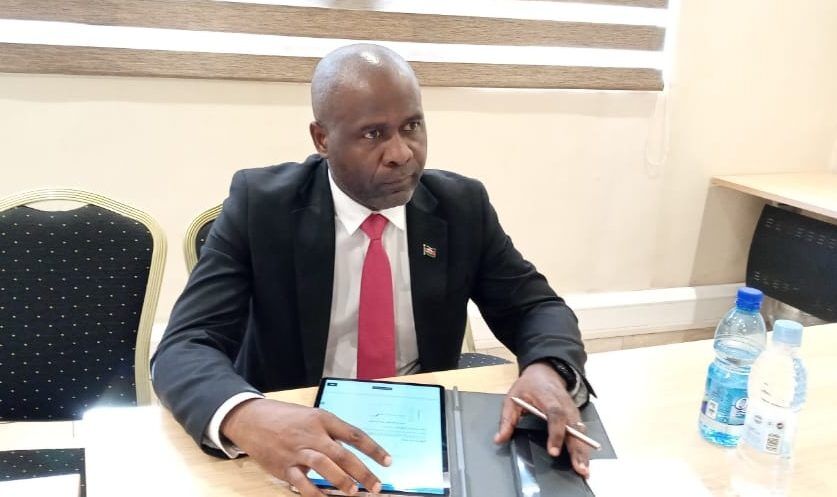
Is justice accessible to all Malawians under President Chakwera’s regime? If so, why are corruption suspects like Kezzie Msukwa shielded from prosecution by legally established agencies like the ACB?
Why does the judiciary undermine the office of the ombudsman by protecting Mr. Henry Kachaje from facing justice, especially considering that the Ombudsman found him lacking the necessary prerequisites for his recruitment?
Justice delayed is justice denied, but why did Chief Justice Rezine Mzikamanda defy his own directive to clear overdue cases within 90 days? There seem to be more questions than answers.
Why did President Chakwera disregard the proper procedures when appointing John Biziwick as the Commissioner General of the Malawi Revenue Authority in 2020?
Sub score: 1/10
3) Standard of living
It is no secret that many Malawians voted for President Chakwera with the expectation that the Tonse Alliance government would improve their standard of living.
These expectations included food security, access to clean and potable water, affordable prices for goods and services, and improved living conditions.
However, the reality for the common people is far from satisfactory, while the elected politicians enjoy the privileges of power.

Although the global economic recession, the Ukraine-Russia war, cyclone Freddy, and the COVID
-19 pandemic have had a devastating impact on the economy, Chakwera’s laissez-faire economic approach has worsened the situation. It is concerning to consider what micro and macroeconomic policies are being followed by the Chakwera government to mitigate the adverse effects of the struggling economy. According to the World Bank, weak fiscal management and economic policies implemented by the Malawian government have resulted in recurring and significant fiscal deficits.
Sub score: 1/10
4) Equity and Equality
The aspirations of most Malawians were ignited when President Reverend Lazarus Chakwera promised that all Malawians would prosper together, as one of the pillars of the Malawi Congress Party Hi 5 slogan.
However, three years later, the reality is that Malawians are not truly prospering together. The rich are getting richer while the poor are becoming even poorer. Corruption and nepotism have resulted in unequal access to health, education, and other essential services, which predominantly favor the rich and elite. Competent students are forced to drop out due to lack of fees, and there are no deliberate efforts to bridge the gap between the impoverished and the privileged.
Moreover, the judicial system exhibits selective justice. Elite convicts such as former minister Ralph Kasambara and business magnate Thom Mpinganjira have been on bail for years without any prospect of a trial, while impoverished convicts suffer in jail under inhumane conditions. It is essential to emphasize that the Universal Declaration of Human Rights declares that all human beings are born free and equal in dignity and rights.
Sub score: 1/10
5) Infrastructure Development
It is reassuring to note that the Chakwera regime has demonstrated the political will to continue developing infrastructure, including roads, office blocks, school buildings, and housing for the police and Malawi Defense Force.
President Chakwera has shown commitment to completing infrastructure projects initiated by the previous regime, such as the Area 18 Interchange constructed during Prof. Peter Mutharika’s tenure.
These infrastructure developments are taking place amidst global economic turmoil, the COVID-19 pandemic, fears of food insecurity, and the aftermath of cyclone Freddy, which caused loss of life and displacement of Malawians.
Examples of such infrastructure projects include the Rumphi-Nyika-Chitipa road, Nkhata Bay-Dwangwa-Nkhota-Kota-Salima-Balaka market road, Jenda-Edingeni-Engalaweni-Mzimba road, Dzaleka-Ntchisi-Malomo road, Ntcheu-Tsangano-Neno-Mwanza road, Lirangwe-Chingale Machinga road, Chikwawa-Chapananga-Mwanza road in the south, Mzimba–Mzarangwe-Kafukule–Njakwa road in the north, Matawale road in the east, and the six-lane road in Lilongwe.
Sub score: 6/10
6) Integrity, Accountability, and Transparency
It is widely recognized that a government is established based on public trust. It is therefore the responsibility of the executive branch to articulate its visions, agenda, and policies to the citizens in an open and accountable manner at all times.
However, the prearranged weekly presidential briefings, which were intended to inform Malawians about the President’s activities, have been costly and highly politically motivated.
The truth is that Chakwera’s government often engages in games of hiding and seeking. For example, after publicly delegating Vice President Saulos Chilima to produce a public service reform report, President Chakwera has chosen to keep the report under wraps for over two years.
President Chakwera has denied that his daughter, Veronica Chakwera, was on the list of diplomats sent for foreign missions, yet she and Chilima’s mother-in-law are currently employed in foreign embassies. This contributes to the perception of widespread nepotism in government departments and agencies (MDAs).
Furthermore, the fact that former cabinet ministers under Chakwera, such as Newton Kambala and Kezzie Msukwa, are facing corruption charges, is strong evidence of rampant corruption during his regime.
Sub score: 1/10
7) Health
Has the incumbent regime taken deliberate initiatives to ensure that all citizens have access to quality health services? Did Chakwera’s government effectively handle the COVID-19 pandemic? If so, why were the suspects who looted COVID-19 funds left unpunished? It is disheartening that innocent Malawians died from COVID-19 while funds were misused by unscrupulous and unsympathetic politicians.
Currently, public health facilities in Malawi lack essential drugs, and patients must travel long distances to access primary healthcare services. It is crucial to emphasize that the right to life is a constitutional right.
Sub score: 1/10
8) Education
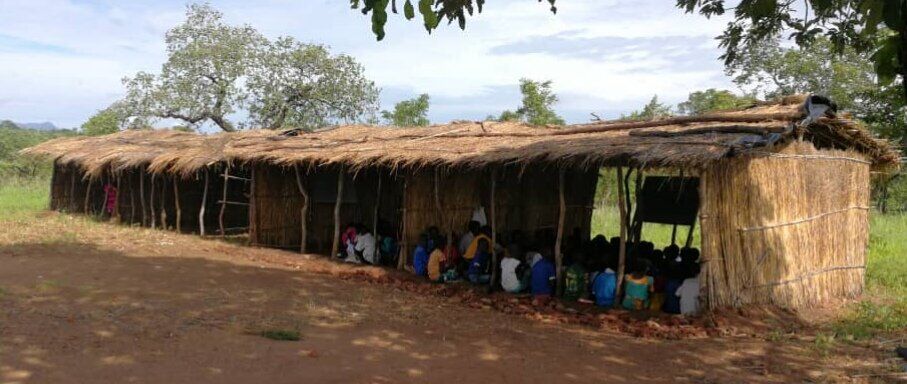
The most pertinent question to ask is whether the Chakwera government has improved the standard of education in Malawi. If not, what areas require improvement?
During Chakwera’s regime, we have witnessed the proliferation of private universities and schools, resulting in increased student enrollment. Unfortunately, limited teaching and learning resources, a shortage of teachers, irrelevant syllabi, and lenient accreditation controls have led to a significant decline in the standard of education.
However, it is worth noting that since last year, there has been better control of leakage during primary and secondary school national examinations.
On a particular note, President Chakwera has yet to fulfill the Tonse Alliance campaign promise of devolving his powers as the Chancellor of public universities.
Sub score: 2/10
9) Industrialisation
From an economic standpoint, Malawi has the potential for unprecedented prosperity if it can transform its natural resources into value-added finished products, which can be exported in exchange for foreign currency. This concept of industrialization requires a political will to invest in stable energy sources, human resource development, and appropriate technological infrastructure. It is evident that it is impractical to seek foreign investors when Malawi is plagued by electricity load shedding.
Insufficient efforts have been made to address the unstable electricity supply, the unsustainable agricultural input subsidy program, high internet charges, and the reliance on subsistence farming. It is concerning that during Chakwera’s regime, opportunistic thieves have taken advantage of the lack of effective leadership and unimplemented cybercrime laws to plunder government funds.
Sub score: 1/10
10) Campaign Promises
It would be unfair to claim that the Tonse Alliance government has completely failed to fulfill all of its campaign promises, as some have indeed been accomplished. For instance, the non-taxable income band was raised to MK100,000 as promised, and a duty-free week was observed, albeit with only a few politicians benefiting from it.
However, it is evident that Chakwera’s regime has failed to deliver on most of its campaign promises. Realistically, it is not expected that all promises would be fulfilled within a three-year timeframe. Nonetheless, without clear categorization of these promises as short, medium, and long-term goals, it is challenging to assess their progress appropriately.
The Tonse Alliance promises were not specific, measurable, achievable, realistic, and time-bound (SMART). Consequently, their empty promises have been unsuccessful. There has been no stipend for the elderly, no provision of three meals per day, no creation of one million jobs within the first year, no free water and electricity connections, no establishment of mega farms or acquisition of significant land, and no implementation of driving licenses that do not expire. The list goes on.
Sub score: 2/10
Recommendations
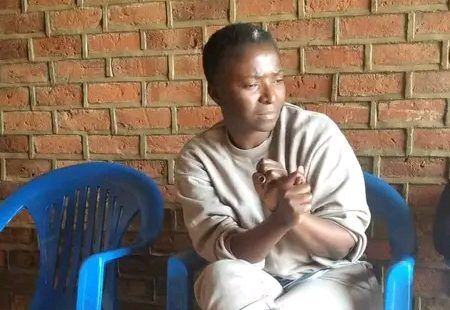
The Tonse Alliance government should provide a timeline for fulfilling campaign promises, preferably before the next general elections in 2025.
Clear policies on industrialization need to be formulated to make Malawi a predominantly exporting country, focusing on stable energy sources and appropriate technology infrastructure.
Efforts should be made to align current industrial needs with relevant curricula in schools and universities to combat unemployment and promote entrepreneurship.
The government must ensure equal access to quality healthcare services for all citizens, without discrimination.
Corruption cases must be expedited and concluded conclusively. Those found guilty must not only repay the stolen funds but also face appropriate legal consequences.
The current regime must ensure that tangible infrastructural development is evenly distributed across all regions and completed to a significant extent before the 2025 general elections to gain public trust.
The Tonse Alliance administration should implement deliberate micro and macroeconomic policies to address extreme poverty among underprivileged Malawians.
Equality and equity policies must be enforced at all times in accordance with the Malawi Constitution. The three arms of government have a constitutional duty to provide checks and balances and ensure fairness and justice.
President Chakwera must demonstrate personal commitment to eradicating the pervasive corruption in Malawi. Otherwise, Malawians will be compelled to believe that the President himself benefits from this vice.
Conclusion
Based on the comprehensive assessment of Chakwera’s regime, it can be concluded that the Tonse Alliance government has performed poorly, scoring only 18%. This indicates that there is ample room for improvement by implementing the outlined recommendations.














